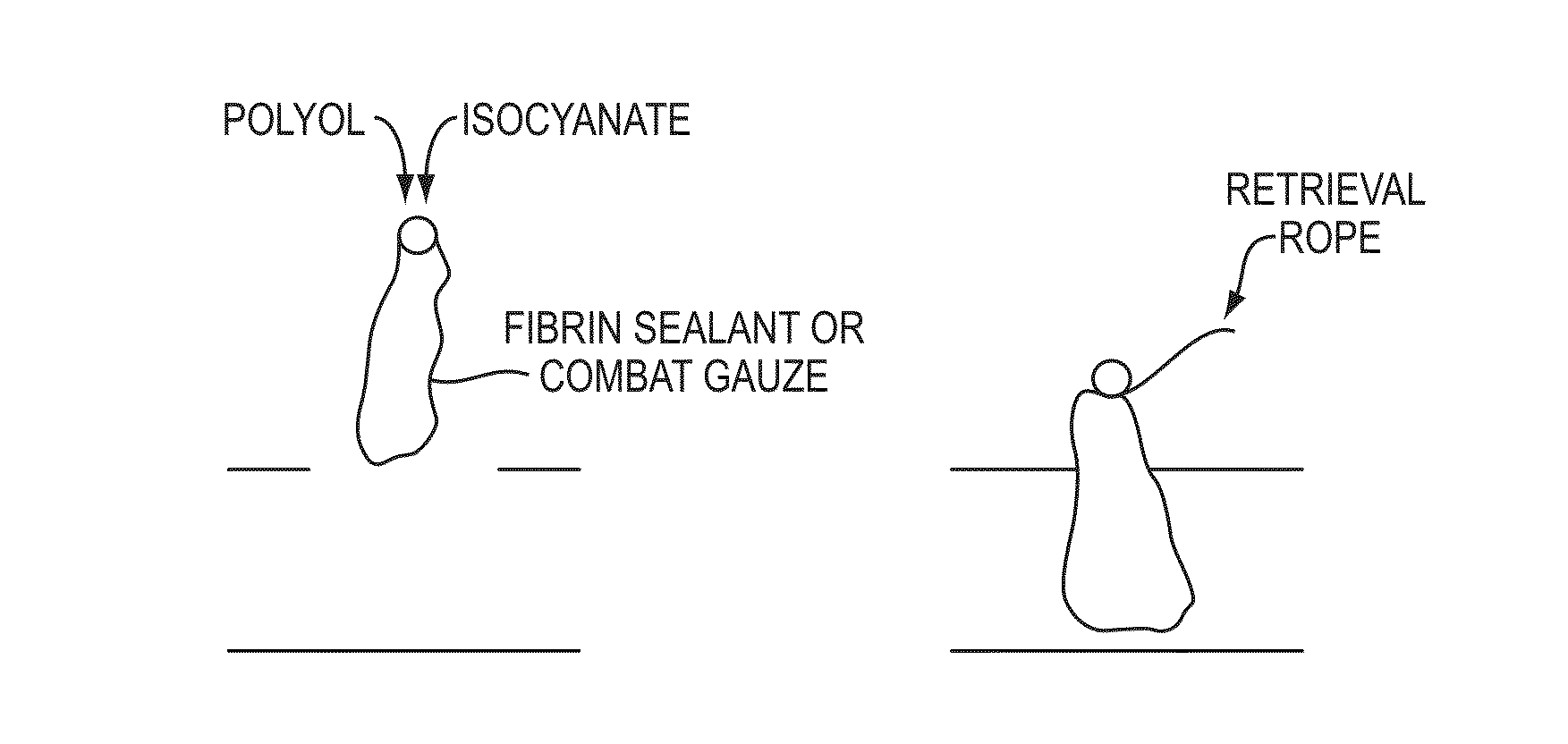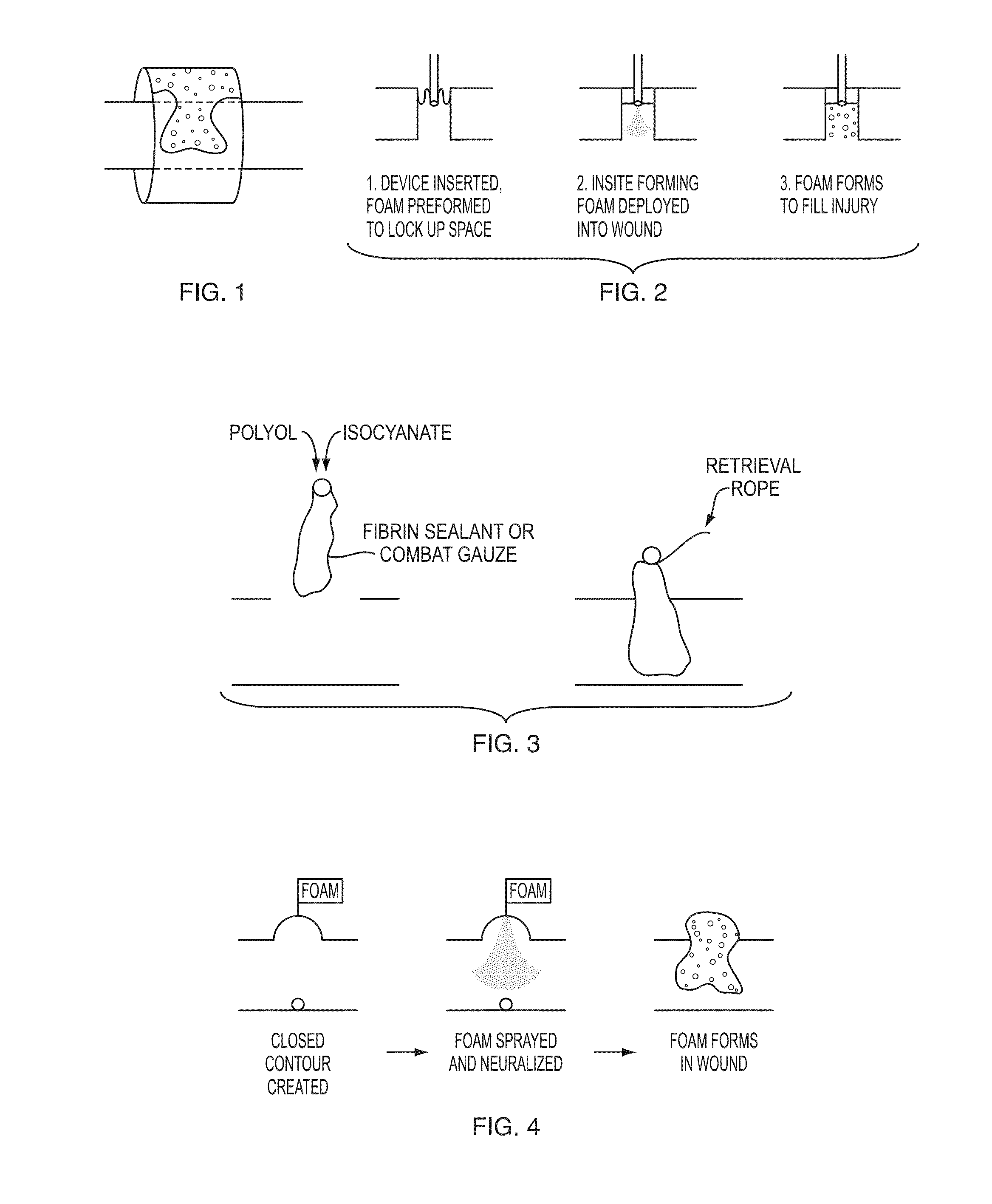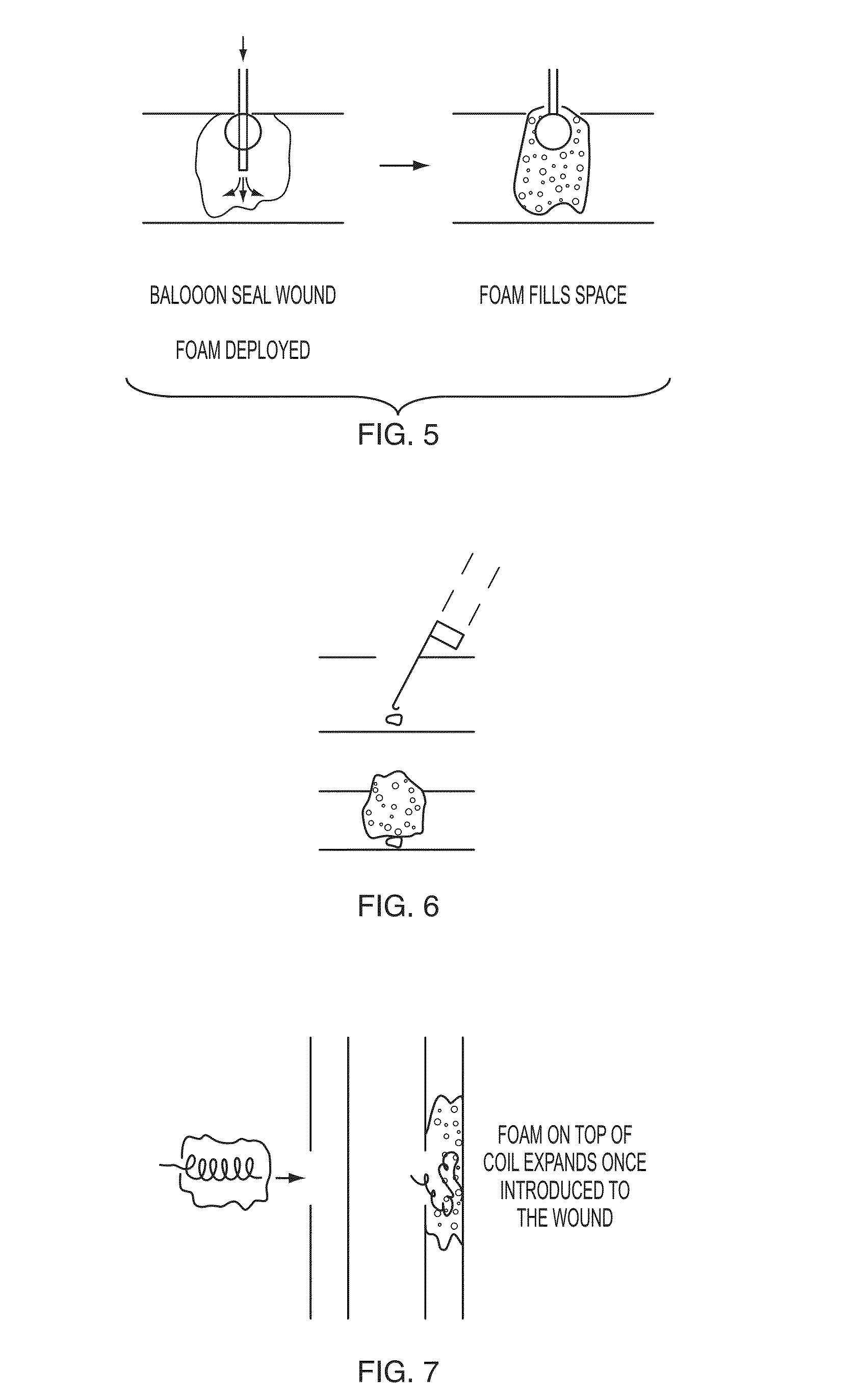Methods and materials to treat junctional and pelvic hemorrhage
- Summary
- Abstract
- Description
- Claims
- Application Information
AI Technical Summary
Benefits of technology
Problems solved by technology
Method used
Image
Examples
example 1
Swine Pelvic Hemorrhage Model
[0048]A pilot study demonstrated that a self-expanding two-part polyurethane foam could successfully distribute throughout the pre-peritoneal space. This study was conducted in a swine cadaver following a pre-clinical experiment in a severe grade V liver injury model. Foam formulation AM1276 was prepared according to TR-0130. The pre-peritoneal space was accessed using a 5-cm incision just below the umbilicus, and foam was deployed into the space at an initial volume of 100 mL. The instrumentation incision was sealed after deployment using a penetrating towel clamp.
[0049]As shown in FIGS. 8A-B, the foam 1 distributed throughout the pre-peritoneal space, conforming to local anatomy. Foam was observed in contact with the region containing the iliac arteries. It is expected that this foam distribution could provide hemostasis in pelvic hemorrhage. The extent of the foam expansion within the preperitoneal space is further illustrated by top and side views of...
PUM
 Login to View More
Login to View More Abstract
Description
Claims
Application Information
 Login to View More
Login to View More - R&D
- Intellectual Property
- Life Sciences
- Materials
- Tech Scout
- Unparalleled Data Quality
- Higher Quality Content
- 60% Fewer Hallucinations
Browse by: Latest US Patents, China's latest patents, Technical Efficacy Thesaurus, Application Domain, Technology Topic, Popular Technical Reports.
© 2025 PatSnap. All rights reserved.Legal|Privacy policy|Modern Slavery Act Transparency Statement|Sitemap|About US| Contact US: help@patsnap.com



